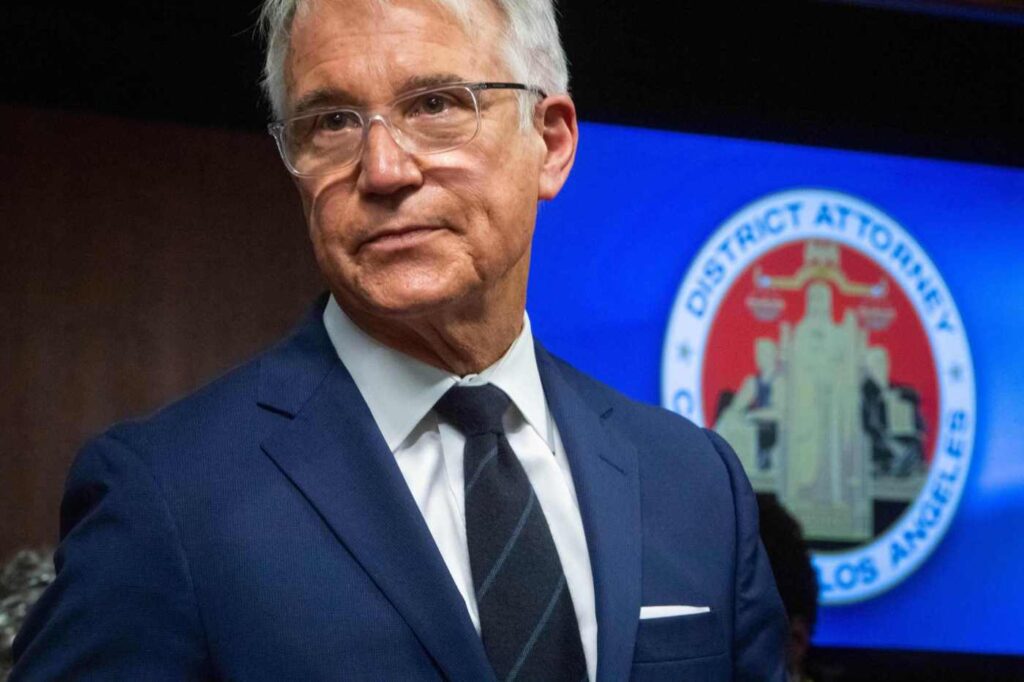
When it comes to crime and justice, it seems like déjà vu all over again.
Starting in the 1980s, crime and fear of crime created a “school to prison pipeline” that led to America having the highest rate of incarcerating citizens of any nation on Earth — by a lot. With our “Three Strikes and You’re Out” law signed by Gov. Pete Wilson in 1994, California led the way in jailing people and throwing away the key.
Both property and violent crime actually peaked nationally in 1991, yet the relentless drive to build and fill prisons continued until 2008. By then, more than one out of every hundred adults were behind bars. Nearly half of Black men, 45% of Latino men and 40% of White men had been arrested by the age of 23. It was costly, cruel and unsustainable.
Courts challenged prison overcrowding. Reformers from both right and left challenged the inequities of mass incarceration. America seemed to be coming to its senses. California again led the way, enacting real criminal justice reforms supported by Gov. Jerry Brown.
Today, crime and fear of crime are again on the rise — perhaps inevitably after achieving historic lows both nationally and here in California. It’s a confusing and troubling time with metastasizing homeless encampments, soaring street drug use and rising gun murders. Making sense of these disturbing trends is nearly impossible as toxic political polarization transforms rational discussion into hysterical rancor. Angry right-wing voices paint California as an anarchic hellhole where law and order has collapsed. Strident left-wing voices clamor to “defund the police,” denouncing officers as racist occupiers.
In the crosshairs of this upheaval are the elected prosecutors in California’s two most prominent metros: George George Gascón in Los Angeles County and Chesa Boudin in San Francisco. Both ran in 2020 as outspoken reformers. Gascón defeated incumbent Jackie Lacey and Boudin ironically followed George Gascón (who moved back to L.A. to run, having risen to the top ranks of the Los Angeles Police Department before serving as chief in San Francisco and later as district attorney). Each made sweeping reforms in line with their campaign promises.
Now both are the targets of well-funded recall efforts. Boudin faces the voters on June 7. Gascón recall backers are currently gathering signatures after a first effort faltered.
Both probably overreached in their initial days in office, perhaps following the example of Philadelphia prosecutor Larry Krasner, the first in a national wave of reformists. Elected in 2017, he immediately moved to shake up his office and enact broad changes. He was thumpingly re-elected in 2021 with more than 70% of the vote.
If the powerful interests get their way, neither Boudin nor George Gascón will have a chance to overcome their early shortcomings. Recall backers seek to exploit legitimate public fears to thwart overdue reform.
Both prosecutors deserve an opportunity to remain in office to learn and recover from their initial mistakes. Why? For two common-sense reasons. First, the Newsom recall should have taught us the folly of letting disgruntled losers replay elections. Despite missteps, Gascón and Boudin are carrying out promises they made to the voters. Two years is too short a time to test them and the impact of their policies. Second, the disastrous legacy of mass incarceration should have taught us the folly of listening to those who claim more arrests, jail time and criminal records is the right response to crime and disorder. Will Boudin and George Gascón survive recall attempts? It depends on whether voters’ memories are wisely long, or foolishly short.
Rick Cole is a former mayor of Pasadena and deputy mayor of Los Angeles and served as city manager in Azusa, Ventura and Santa Monica. He welcomes feedback at urbanistcole@gmail.com.
